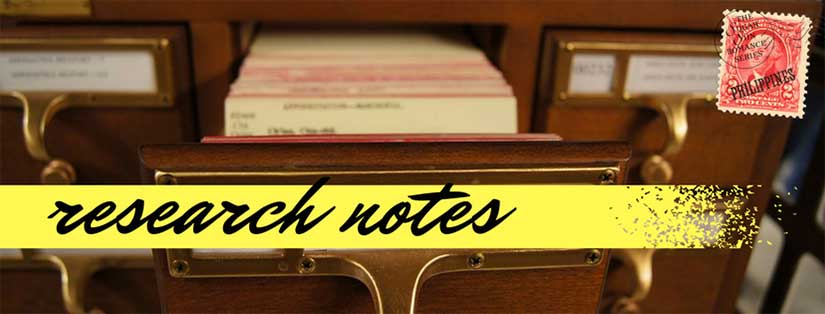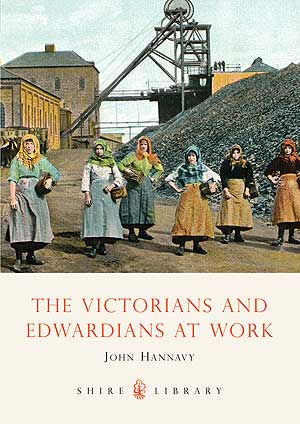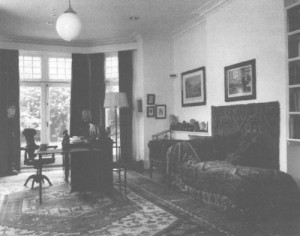I check my stats fairly often to see what draws traffic to Edwardian Promenade and also to obtain ideas for future posts. In response to many of the combination of words used to find my site, yet these visitors don’t find what they need–due to google pulling words from each post, rather than the post pertaining to the search–I’ve set up a page, which you will to see to your left, called “Ask Evangeline.” Leave any question or query you have about the Edwardian era in the comments and I will do my best to dig up the answer for you. Many happy returns!
More from Evangeline Holland
The Duties Of The Cook And The Parlourmaid
Different types of households required different types of servants, and in smaller...
Read More
You may also like
32 replies on “Ask Evangeline”
Comments are closed.




Hi, I’m a writer and a big fan of your site, it’s great.
I recently switched the concept and time of a novel I’ve been working on, and two of the main characters who are about 17-18 will meet at a informal party during the summer of 1914, before there was any word of the war in England. I’m having trouble with configuring what the setting, company, food ect would be like, and if you have any ideas it would be a godsend.
Hi Lissie,
First let’s pinpoint the social status of your characters.
If the party is in London: the upper middle classes lived in Kensington and Bayswater. The middle middle classes lived in Chelsea. The lower middle classes in Holburn and Bloomsbury. The aristocrats lived, of course, in Mayfair and Belgravia. Check out my posts on London of the Edwardian era for more information. If the party is outside of London and not at a country house, the upper-middle classes also live in the newly-formed suburbs of Richmond, etc.
Secondly, the company would never be comprised of strangers, unless it was some special guest of note, like an opera singer or writer. But mostly, parties would be restricted to close-knit friends and family.
The food depends upon the time of day. If an afternoon party, sandwiches, punches, cold meats, fruit, puddings, and so on. If a dinner party, the meal would be very formal–in courses. Soup, salad, joints, roasts, fish, vegetables, sweet dishes, wines and cocktails.
I would recommend you have the party be a boating party on the Thames. It’s a pretty and picturesque setting, and punting along the river took place in the afternoon and people of all age groups were be able to participate in it. And it was an activity people of all social classes did during the late spring/early summer months–the Henley Regatta!
Some resources:
Punt
Punts and Poles
Henley Royal Regatta
Check out this site for pictures for inspiration
Luncheon cookbooks
Thanks so much!
The two main characters are of the aristocracy or come from old money. I should rephrase the word meeting, it’s more like a reunion as one of them has been away at school. A boating party is a wonderful idea, thanks for all the details, your site is wonderful and gives so many details that are great to work with. Keep up the amazing work. 🙂
Dear Evangeline
I know you already have lots of things to do and are probably cursing me for adding more to your workload, but in the interests of not upsetting the person who nominated me in case she puts the word out I’m a spoilsport and my blog gets ignored, I selected your blog for this award.
The basis is promotion, so I hope you’ll pass it on, so please visit my blog tomorrow for details and how do to it. And just to say I think your blog is truly fabulous and I have used it to help me write my wip set in 1900
The logo will be there too to copy and paste on your own blog.
Anita
Blog: http://thedisorganisedauthor.blogspot.com
*g* No problem Anita! I don’t mind doing this.
Hi Evangeline. I love your site. I am endeavouring to make flat dolls, similar to paper dolls, but with a poster board backing and my own costumes. Your edwardian ladies would make excellent models for these. Could I have your permission to print off one or two of these ladies to use as models. These dolls will not be sold. I look forward to your reply. Kindest Regards, Marilyn.
Hi Marilyn, you sure can print them off! If you don’t mind, I’d love to see the results.
Dear Evangeline,
I am so excited to have found your site. I have found it difficult to find late Victorian/early Edwardian slang for middle or upper-middle class folk. More particularly, I want a word equivalent to the more modern “git” — a word that is something of an insult, but a milder one. I need something that could have been used by an educated middle class young man living in London in 1902. Any suggestions? I would also appreciate any information about the Lake District circa 1902.
Thanks much.
Maisie
Hi Maisie, I’m glad my site!
As for slang, I do have section on my website devoted to slang, but a quick search in the Online Etymology Dictionary reveals that most of the British slang we know today is very, very modern (within the last 60-70 years), and as the Victorians were not likely to publish the vulgar slang of the time, I believe we must make do with anachronisms! So use git, etc!
Regarding the Lake District, Google Books has a particularly delightful title: Highways and byways in the Lake District. Just check out the site and search for any book pertaining to this area of N. England.
Ms. Evangeline:
I am currently taking an undergraduate Christian Fantasy course via the web from another university, and the professor uses Jared Lobdell’s description of The Lord of the Rings, “an adventure story in the Edwardian mode” in asking a question, but I cannot find a definition detailing what that would mean. I would greatly appreciate any information or direction in my search for an answer. Thank you for your time in this matter as I know how limited it must be.
Sincerely,
Danielle
Hi Danielle, I found this description from Lobdell’s own book: “The “Edwardian mode” of adventure story (King Solomon’s Mines, The Lost World) is one in which a small group of Englishmen make an expedition to foreign parts and find supernatural terrors awaiting them, finally returning home, mission accomplished.”
Further study from Tolkien fans can be found here.
Hope this helps!
Hello Evangeline,
What a blessing to find your website. I am writing a novel set in a country estate before the outbreak of WW2. If a grand party was to be held, that spread from the house to the lawn, would there be a ‘porch’ or a ‘veranda’ or neither on a country estate?
Best wishes and thank you
Helen
Hi Helen!
Porches and verandas are American, of course, and also a characteristic of American architecture. A party held on the country estate would be held on the “grounds” or “park” (lawn is an Americanism as well). Instead of a veranda or porch, if in the front of the estate, the party would be held in front of the portico, and if in the back, from the terrace. Take a look at a few English country houses to get a feel for how they are set up.
Dear Evangeline
Thank you for your prompt reply. The information is invaluable and much appreciated!
Cheers
Helen
Hi Evangeline! Your website is amazing. I feel like a broken record, but I too am writing a novel (lighthearted mystery) that takes place in England in the early 1900s. I wondered if I am too naive (and taking rather broad artistic license) to have a mixed race (black/white) female journalist as my protagonist and have her be able to move fairly freely in society, particularly London society.
Hi Georgie,
I don’t think it would be too uncommon, as many Indian princes and princesses took part in high society events, but she would run into a few limitations. Is your heroine British or American? I’ve been reading Willard B. Gatewood’s Aristocrats of Color, and in it he details that a few wealthy black elites vacationed in Europe. I also read an account in Elizabeth Drexel Lehr’s memoirs about an African diplomat dining in the Ritz (I forget whether it was in Paris or in London), and how the American guests she dined with were horrified by his presence and demanded he be ejected. The maitre d’hotel couldn’t eject him because he was important, but he did put up a screen between the diplomat and the American guests. Another neat thing I’ve read is an account of Booker T. Washington and his wife as guests of the Liberal and liberal Duke and Duchess of Sutherland at a reception. However, note from these instances that persons of color–non-royalty and non-diplomat–were permitted in social settings that were relatively “public.” I’m certain a person of color could attend events like a reception or a public/private venue like Ascot or the Henley Regatta, but I’m not too sure about country house parties, private dinners in the home, and balls. As per the anecdote related by Lehr, the presence of American guests could limit the amount of social contact persons of color had within high society. You must also consider her background–that old adage “wealth ‘whitens'” holds true.
Thank you so much for your thoughtful answer and for the references you’ve provided. 🙂
She is most definitely British. I had debated whether I should have my heroine be American in early 20th century New York. But I just found that she would run into so many obstacles that would take away from the mystery. So it is good to see that I made the better choice of having her be a Brit. You have been such a help. And your site is so very helpful.
Take Care!
Georgie
Evangeline,
I click on “ebooks” on the menu on the right side of your site. It takes me to a page with a book by Eleanor Gates. There is no info with it. I tried to google it (Yahoo it, Bing it, you name it LOL), but I don’t see it anywhere. I am so confused. Help me! Maybe my internet browser is having a brain fart?
Hi Georgie, don’t worry about that link because I’m still building it. Thanks!
Hello Evangeline
I am finding it really hard to resource info and pictures about what men of varying classes (groom to owner etc.) would wear to go horse-back riding. Any information (pointers to original photos would be fantastic) would be very much appreciated!
Thanks, Donna
Hi Donna, men’s riding attire–whether they be the lord of the manor, or a groom–was very simple. Gentlemen of the upper and middles classes wore frock coats, cloth breeches, black jack boots (Large boots coming above the knees, like those worn by fishermen), and a top hat or bowler. Grooms would omit the frock coat for a plain single-breasted overcoat, and substitute the top hat or bowler with a flat cap. The cloth wouldn’t be of the highest quality, but of the most durable.
Hi I am student and envolved in a production of a musical set in Cardiff around 1910 with prostitutes and sailors in it. Could you tell me anything about prostitution in the era and sailors.And if you have any photos from the period as I would like some ideas on costumes.
This is an exellent site and very informitive on the period.
Thankyou ,Tomos
Hi Tomos, feel free to drop me a line for more information. Thanks!
Sorry don’t understand do you have any information for me?
Thanks
What you are asking for would require a private email or a complete blog post due to the quantity of information available. So just email me. Thanks!
Hello!
I’m writing a novel set in 1895 London/England and I need help with a couple of small details….PLEASE!!!!
First of all, my heroine is a sixteen year old member of aristocracy. Can you tell me at what age she would go from wearing her hair down like a child to up like a mature women? I’ve read conflicting reports.
Secondly, her parents are of the rank of Lord/Lady. As her mother dies would she automatically asume the rank of Lady or would she still be titled Miss such and such until she married?
Thanks so much!
BethAnn
Hello BethAnn!
Girls typically made their debuts at seventeen or eighteen; sixteen year old debutantes were extremely rare. As for her rank, she would only be “Lady Firstname Lastname” if her father or brother was a duke, a marquess, or an earl. If her father or brother was a viscount, baron, baronet, or knight, she was “Miss Firstname Lastname,” and addressed as “Miss Lastname.” Her mother has no bearing on her courtesy title. If you are confused by the British peerage, check out my page here, and this website.
Thank you so much! You have a fantastic website, one of the best I’ve found in over four years of research. No doubt this isn’t the last you’ve heard of me!
Has anyone heard of the Marquise de Fontenoy ? She seems to have been a writer on society but I can’t find much about her X
Hi Alastair, “Marquise de Fontenoy” was the pseudonym of Marguerite Cunliffe-Owen.
Hi Evangeline,
Love your site! I’m an author and am doing research for my 1912 novel about a woman African explorer (like Mary Kingsley of previous years). She is a British aristocrat but poor(part of the story). Do you know where I can find more information on women explorers of this time? Their safari clothing, slang, sensibilities etc… Anything is good.
If you have any info on your archives please direct me there.
Eva
Hi Eva–sounds like a great story. I did a post on lady explorers of this period here. To obtain a deeper perspective of Africa during the era of imperialism, I highly recommend Black Victorians/Black Victoriana by Gretchen Holbrook Gerzina, and Black Edwardians: Black People in Britain 1901-1914 by Jeffrey P. Green.